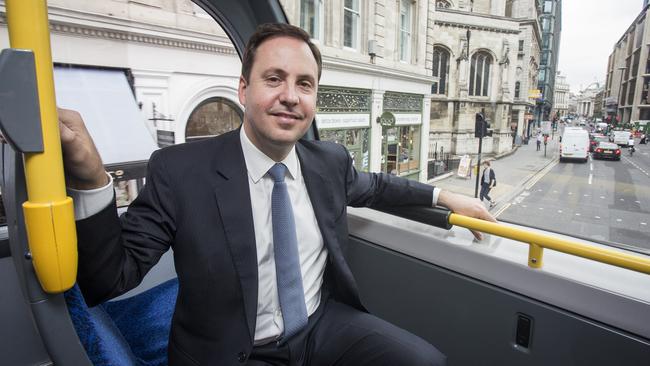Don’t take Ausgrid rebuff to heart, Steven Ciobo tells China
Australia welcomes Chinese investment despite its decision to block China’s bid for Ausgrid, Steven Ciobo says.

Australia welcomes rising Chinese investment despite its decision in August to block Hong Kong and mainland China bidders from buying the country’s largest electricity network, Trade Minister Steven Ciobo said.
In a briefing with analysts and the media, Mr Ciobo said the decision to deny Hong Kong-based Cheung Kong Infrastructure Holdings, owned by billionaire Li Ka-shing, and China’s State Grid a controlling stake in Ausgrid “was not about the bidders but about the asset itself”.
“Whether it’s China or Canada, it wouldn’t have made a difference,” said Mr Ciobo, citing the need for Australia to take national security into consideration in any sale of an infrastructure asset.
Mr Ciobo said Australia was still looking at options for the electricity network.
“We can certainly work our way through these matters, but sometimes it just takes a little time,” he said
Australian officials said they met this week with Cheung Kong in Hong Kong.
Cheung Kong has previously said the Australian government “must have reasons beyond the obvious” for rejecting the deal, noting that the company invested more in Australia than in Hong Kong and mainland China.
State Grid called Australia’s decision “deeply disappointing.”
Mr Ciobo’s remarks come a day after China made its first multibillion-dollar investment in Australian infrastructure assets since it was blocked from buying the NSW electricity provider.
CIC Capital, China’s $US200 billion ($264bn) sovereign wealth fund, emerged as a member of the QIC and Future Fund-led Lonsdale Consortium, which has agreed to pay $9.7bn for a 50-year lease over the Port of Melbourne. The Chinese wealth fund has committed almost $2bn for a 20 per cent slice of the port, helping to hand the Andrews state government a windfall gain and reigniting the debate about Chinese investment.
Mr Ciobo this week said the Turnbull government was considering the creation of a list of infrastructure deemed too sensitive to be in foreign hands, following criticism that decisions on offshore investors were opaque.
“I consistently hear — as investment minister — concerns that are raised about there being a lack of certainty with respect to assets that foreign investors can invest into Australia,” he told Australian media, in the first acknowledgment from the government that some recent decisions have damaged perceptions of the country among foreign investors.
“We want to make sure that those that are looking at investing can understand with a higher degree of certainty what the framework is, and what the circumstances are in which they can invest in Australian assets.”
As well as Ausgrid, the government last year rejected bids from a China-led private consortium to buy agricultural empire S Kidman & Co and the lease of Darwin’s port to a China-linked business has drawn criticism from the US, which uses the port as a base for visiting Marines.
Hong Kong and mainland China are the sixth and seventh largest foreign investors in Australia, respectively contributing $US85bn and $US75bn last year, according to Australian government data. The US and Britain are Australia’s top foreign investors.






To join the conversation, please log in. Don't have an account? Register
Join the conversation, you are commenting as Logout